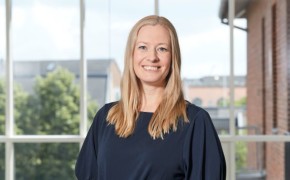Green business models based on energy screenings help SMEs increase profit while also contributing to the Danish national goal of 70% cutting in CO2 emissions.
Denmark aims at cutting CO2 emissions by 70% in 2030 and being carbon neutral by 2050.
In order to optimise resources and energy efficiency as well as cutting CO2 emissions in SMEs while at the same time strengthening their competitiveness, Aalborg Municipality initiated the practice with support from the ERDF.
Over a three-year period, Aalborg Municipality offers Danish SMEs the chance to apply for an individual, free and non-binding energy screening. By compiling data on energy, resource and waste management, Aalborg Municipality identifies and condenses the optimisation potential into concrete and realistic measures for a given SME.
Of the 200 SMEs screened in total, 60 SMEs looks to receive financial aid (up to 50%) in developing a green business model on e.g. energy efficiency, upcycling potential and digitisation, etc. A private contractor will be tasked with giving concrete instructions on how to increase energy and/or resource efficiency in the SME itself as well as on a national scale - either through optimisation of the operations of the SME or its value chain.
Of 60 funded business models, 25 promising SMEs will be offered another grant covering 50% of the expenditures related to the implementation of the green business model.
Also, Aalborg Municipality will organise seminars and workshops for the participating SMEs and other interested parties to share and discuss strategies, experiences and results.
Resources needed
Human resources: 2 x FTEs.
Financial resources: The practice is founded by the ERDF for Denmark. 242,000 € for the creation of the green business models (covers 50% of the SMEs’ costs); and 672,000 € for the implementation of the green business models (covers 50% of the SMEs’ costs).
Evidence of success
Two years into the project, the business models of the participating SMEs have already reached calculated emission reductions by more than double the initial goal, cutting 900 tonnes CO2. Also, with the implementation of the business models, the SMEs will have gained a competitive advancement in their production as outdated technology will have been replaced. By offering 50% financial aid, SMEs striving to become greener, but lacking the financial start capital to do so, has been reached.
Difficulties encountered
Communication is needed to mitigate the “if it isn’t broken, don’t fix it” mentality that at times makes SMEs reluctant to engage in implementing green business models, fearing that expenses related to the implementation will outweigh the profits gained through energy and/or resource optimisation.
Potential for learning or transfer
The project has shown great potential in creating strong public-private partnerships on energy and resource optimisation. By conducting energy screenings and offering financial aid to SMEs, Aalborg Municipality has successfully provided incentives for several SMEs to become involved in the national goal of cutting the CO2 without jeopardising profit. With its relatively simple framework and few stakeholders, the practice can provide a ‘plug-and-play' inspiration to other local, regional and national agencies throughout Europe.
By focusing on SMEs, the practice has been initiated and carried out without the need for national policy changes. The ability to work within existing legal frameworks has streamlined the process from the inception of the practice to its results, allowing the SME to achieve fast and tangible results both in terms of profits and greenhouse emission reductions.
Please login to see the expert opinion of this good practice.
Tags: Business, Competitiveness, Emissions, Energy, Energy efficiency, Growth, Low-carbon, Private sector, SME








